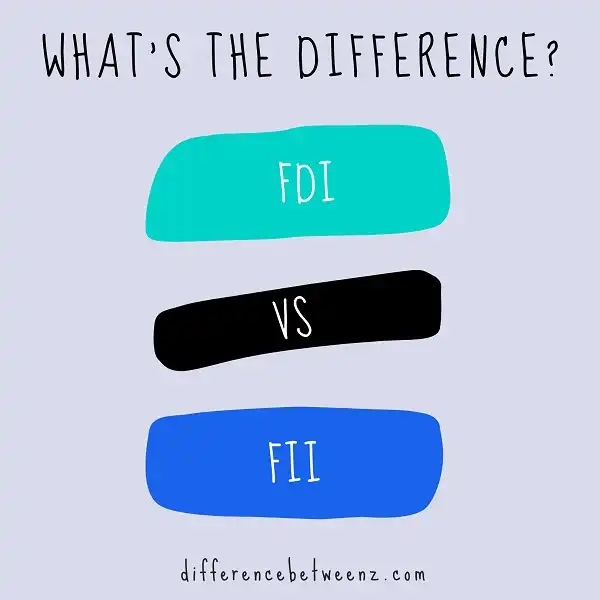There is a lot of confusion among investors and the general public about the difference between foreign direct investment (FDI) and foreign institutional investment (FII). In this blog post, we will try to clear up some of that confusion. We will start by explaining what FDI and FII are, then we will compare and contrast the two. Finally, we will give our opinion on which type of investment is better for individual investors.
What is FDI?
When a company decides to expand its business into another country, it will often do so through foreign direct investment (FDI). This is when the company builds new facilities or acquires existing businesses in the other country. FDI can take many different forms, such as starting a new factory or buying a minority stake in another company. There are many reasons why companies choose to invest directly in foreign markets, including access to new customers, lower production costs, and government incentives. FDI can be a risky proposition, but if done correctly, it can provide a company with significant growth opportunities.
What is FII?
FII stands for Foreign Institutional Investor. FIIs are foreign entities that invest in the Indian securities market. This includes investment in stocks, bonds, and other financial instruments. FIIs are important for the Indian economy as they bring in foreign capital and help to promote economic growth. In recent years, the Indian government has taken steps to encourage more FII investment by relaxing some regulations. As a result, FII investment in India has increased dramatically. FIIs can be either private or public institutions. Some examples of private FIIs include hedge funds, pension funds, and insurance companies. Public FIIs are typically government-sponsored entities, such as sovereign wealth funds. FIIs play an important role in the development of the Indian securities market and have helped to make it one of the fastest-growing markets in the world.
Difference between FDI and FII
FDI and FII are two investment concepts that are often confused. FDI stands for Foreign Direct Investment, while FII stands for Foreign Institutional Investment. FDI is when a company invests in another company based in another country, with the goal of establishing a long-term relationship. FII, on the other hand, is when an institution such as a pension fund or hedge fund invests in another country’s stock market or securities. FII can be done either for the purpose of earning a return on investment or for hedging against risk. While both FDI and FII can have a positive impact on a country’s economy, FDI is generally considered to be more beneficial because it leads to the creation of jobs and the transfer of technology and know-how.
Conclusion
In this blog post, we’ve outlined the key differences between FDI and FII. We hope that this information will help you make more informed decisions when it comes to investment opportunities.


